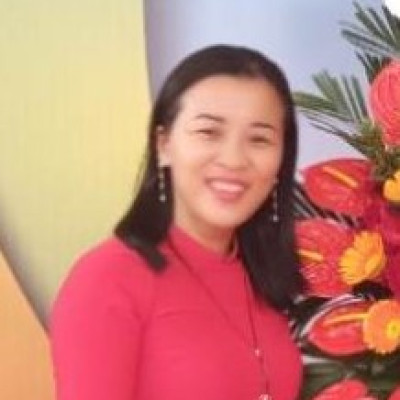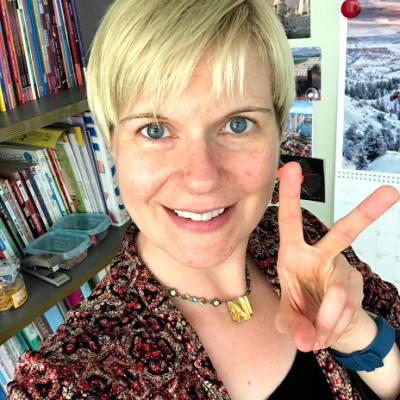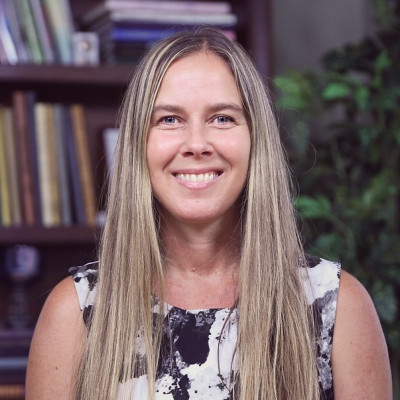Sessions / Culture & Cross-/Intercultural Perspectives
Commercials and Signs as ESL/EFL Teaching Tools #3395
Many ESL/EFL learners are unaware of the societal issues associated with English-speaking cultures. This creates a gap in the learning process because they are unable to understand specific references or discussions within the new culture (Bastos et al., 2022). ESL/EFL teachers have a responsibility to fill the gap by providing the students with tools that will support their learning. This asynchronous poster presentation aims at using commercials in media and various signs as learning tools to support ESL/EFL learners for their intercultural adaptation. Commercials in media and various signs can be used in ESL/EFL classrooms to help the students increase cultural awareness because they involve current events and language, which cannot be found in textbooks. The students can listen to the commercials or see various signs and discuss the themes within them. A variety of ideas to use commercials in media and signs will be provided through the presentation.
Collab in Times of Anxiety #3400
Korean university students rebuild connections in face-to-face team assignments. When there is no escape from people, how can everyone participate comfortably despite students describing anxiety about working with real people instead of Zoom screens? Late 2022 saw institutionally-encouraged face-to-face classes return as the learning norm. However, learners expressed high levels of anxiety regarding face-to-face classes. To cope with this the teacher practitioner conducted regular check-ins regarding student-reported anxiety about learning. Thinking of the face-to-face classroom as a ‘new’ learning environment, the teacher researcher walks through collaborative scaffolding to help learners engage despite discomfort and nervousness. The presenter will share how they re-worked Hmelo-Silver, Chernobilsky, and Jordan’s collaborative learning processes in new learning environments into their physical classroom after two years of online Zoom classrooms.
Hmelo-Silver, C. E., Chernobilsky, E., & Jordan, R. (2008). Understanding collaborative learning processes in new learning environments. Instructional Science, 36(5), 409-430.
Cultural Differences in EFL Teaching Methods Between Korean and Non-Korean Teachers #3534
This study was to designed to assess the key cultural differences in teaching between Korean and “western” teachers, and to analyze why these differences might exist. A questionnaire was given to 35 Korean and 36 Non-Korean teachers to find where significant differences between teaching methods, approaches and pedagogies exist. After this, follow up interviews were undertaken. The most significant data finding was the emphasis that Korean teachers place on testing and memorization compared to the Non-Korean cohort. This study also showed a key difference in the way Korean and non-Korean teachers viewed and used verbal immediacy and lesson planning. Finally, the qualitative data from the study showed a strong preference on the part of Korean teachers to move away from more traditional aspects of the Korean classroom environment towards a more processed based approach in which creative and critical thinking could be enabled.
Internationalization at Home: Virtual Cultural Exchange Among Korean and US College Students #3544
This is a reflective report on experiences and impact of virtual exchange among Korean and US College students during the pandemic. Educational college students at a public university in the US had opportunities to virtually meet college students in Korea who are learning English across the disciplines at a large national university. Based on the pre-survey result, US educational college students showed their high interests in virtual language and cultural exchange. US students (n=10) and Korean students (n=20) met five times via Zoom for about an hour throughout one semester. The purposes of the project are as follows: 1) Making global friends; 2) Study abroad at home; 3) Developing intercultural communication competence (Deardorff, 2009); 4) Practice the ESL teaching skills; 5) Cultural exchange. The reflections of US students are discussed by sharing positive and negative impact of virtual exchange. At the end, future research plan of virtual exchange is suggested.
Enhancing Cultural Experiences in Teaching and Learning English in the EFL Classroom #3488
Cultural experiences are one of the effective approaches to inspire students to love English and feel highly enthusiastic in learning English. The objective of this study is to demonstrate the values of learning activities in " Cultural Experience Class". Taking part in these activities helps students improve learning results, develop soft skills such as teamwork, organized thinking, personality development, problem- solving, expand vision and connect theory with practice. Experimenting culture is represented by styles, customs and daily life through various different fields such as food, costume, festivals,....etc. Thus, the study attempts to investigate the role of English culture in the process of teaching and learning. The author present a number of cultural experiences to enhance the quality of teaching and learning. The researcher use experimental method to evaluate students’ learning results from the value of learning activities in " Cultural Experience Class". A pre-test, post-test and a survey were collected to determine how the implementation of the technique impact on students’ learning results. The results showed that teaching students through learning activities in " Cultural Experience Class" brought about positive changes in language competence.
Cross-Cultural Awareness at Home: Activities for the Language Classroom #3571
The ability to interact across cultures is valued by modern education systems and employers. Intercultural competence necessitates acquiring knowledge about both unfamiliar cultures and values, and one’s own. It implies an attitude of openness to difference, and the ability to recognize stereotypes.
As language is inseparable from culture, teachers have both a responsibility and an opportunity to train students’ intercultural competence. However, COVID-19 and its aftershocks continue to disrupt our ability to travel and experience genuine interaction across cultures. Further, many argue that the representation of culture in ELT textbooks and classrooms is inadequate.
This workshop will introduce frameworks and activities that teachers can use to sensitize students to cultural difference, help students to understand their own values, and connect those values to cultural behavior. It will also suggest ways in which online tools can be used to encourage collaboration beyond the classroom.
Advancing Global Education (GE) in EFL Classrooms #3586
As our planet continues to face significant challenges, such as war, pandemics, social inequality, climate change, and human rights violations, students are directly impacted and may struggle to cope. Global Education (GE) is a pedagogical approach that offers students the opportunity to engage in meaningful discussions about relevant issues, challenge their perspectives, and improve their English abilities. Proponents of using global issues as content argue that it increases multicultural awareness, develops tolerance for different opinions and other cultures, promotes self-reflection, and enhances valuable skills such as problem-solving and critical thinking. The workshop will begin by addressing the components of a GE framework. Then, the presenters will focus on activities and materials, student reflections, and, through audience participation, discuss some of the challenges and limitations. The session will conclude with a Q&A.
COIL: Replacement or Preparation for Actual Study Abroad? #3469
During the Coronavirus pandemic, collaborative online international learning (COIL) emerged as a substitute for study abroad. However, there is now an opportunity to re-purpose COIL to better prepare prospective sojourners. This presentation will report on the experiences and government-funded research of the presenter, who coordinated two cross-cultural COIL courses between students at a university in Japan and those studying in North America. In this presentation, the speaker will first introduce the COIL courses by comparing two different online platforms that were used: Padlet and Flip. Next, based on qualitative data received from 31 students and employing a phenomenological research design, the presenter will discuss the effectiveness of using COIL as preparation, as opposed to a replacement, for overseas experiences. Both educators and administrators who attend this session will be exposed to ideas for setting up COIL and integrating it into L2 and cross-cultural curricula.
Bilingual education in a globalized age: An ecological perspective on two Chosonjuk schools in China #3515
Drawing on ecological perspectives, this study investigates changes in the bilingual education of ethnic Koreans in China in the context of globalization. Focusing on two Chosonjuk (ethnic Korean in China, 朝鲜族)schools in Northeast China that experienced challenges due to declining enrollment as a result of the increasing popularity of attending Han (ethnic Han Chinese, 汉族) schools, this study discusses the ways in which these two schools repositioned their bilingual programs to leverage the Korean (Chosonmal, 朝鲜话) and Mandarin(Putonghua, 普通话) languages as linguistic capital and the ways in which such repositioning affected the school choices of Chosonjuk families and other student families. Our findings show that these two schools implemented a series of changes, including the provision of individualized instruction to students to meet their specific needs and the enrollment of Han students and international students from South Korea who were interested in learning the Korean or Mandarin languages. These practices increased the attractiveness of the two schools to families with a variety of needs and concurrently created an inclusive educational environment for the students.
Virtual International Trips: Promoting Cross-Cultural Learning and Global Citizenship at Home #3502
With international travel disrupted during the COVID-19 pandemic, the Graduate School of Education and Psychology (GSEP) at Pepperdine University developed virtual international trips to uphold its commitment to global leadership and change. Building off years of successful international travel, faculty and instructional designers collaborated to create synchronous and asynchronous online experiences intended to simulate on-ground itineraries. Follow the entire design process from iteration through implementation, explore the projects’ challenges and successes, and experience the highlights of this unique virtual learning journey. Importantly, see how intercultural perspectives and GSEP’s six filters of analysis are incorporated throughout to promote global awareness and authentic collaboration.
Collaborating on Cross-Cultural Connections: Promise, Pitfalls, and Cosmopolitan Potential #3353
Featured Session
In an increasingly interconnected world seemingly rife with xenophobia, prejudice, and division, there is a clear need to cultivate compassionate, reflective, open-minded orientations in students. One way to do so might be via cross-cultural connections – to facilitate interaction between our students and diverse others so everyone involved can encounter a variety of perspectives and uncover “new vistas for investigation and self-discovery” (Campano, 2007, p. 19), opening up new horizons, new possibilities, and the kind of “embodied cosmopolitanism” brought about by “wonder, triggered by substantive encounters with the new” (Hansen, 2014, p. 9).
It can thus be quite beneficial for educators to team up global peers to create a cosmopolitan “third space” (Gutiérrez, 2008) where their students can interact with each other. Indeed, this kind of collaboration between classrooms can be a powerful and motivating approach to education – but it comes with potential pitfalls, as well. Having collaborated with educators around the world on online intercultural exchanges, I’ll offer in this presentation a dissection of my own experiences: the highlights, joys, and benefits, as well as the problems, drawbacks, and disappointments. The presentation will conclude with advice and suggestions for collaborating with international colleagues on online intercultural exchanges, with the ultimate aim of crafting an enjoyable, positive, uplifting experience for everyone.
Global Collaborations to Promote Language Learning and Teacher Development #3360
Featured Session
We have never been more prepared than now to harness the power of connectivity to establish global partnerships for language teaching and learning. Over the past two years, people all over the world have come together online and through phone apps to share ideas, stories, research, and art – sometimes leading to unexpected and lasting connections. During this interactive session, we’ll share our understanding of global citizenship education and how it can foster unique opportunities for language learning, teacher development, and positive social change. We’ll explore opportunities to develop virtual exchanges that engage learners, student teachers, and teacher educators through project-based learning, with a focus on the social issues they care most about in the world. Practical ideas for implementation, complete with activities using a range of multimodal platforms, will be presented.
Multicultural Education in South Korea: A Literature Review #3439
Since 2012, there has been a steady increase in the number of multicultural families in South Korea, with a subsequent increase in multicultural students in schools (Chung, 2021; Im, 2022). According to Lee (2022), multicultural children encounter language barriers, academic difficulties and discrimination from peers, as well as teachers. Stakeholders have advocated the need for policy makers, administrators, as well as researchers to collaborate on comprehensive solutions that ensure improved educational opportunities for multicultural students (Kim, 2022). This review aims specifically to summarize research literature about multicultural education in South Korea and identify emergent issues faced by multicultural students. It concludes in a ‘best practice’ guideline for English language teachers and other stakeholders of multicultural programs.














